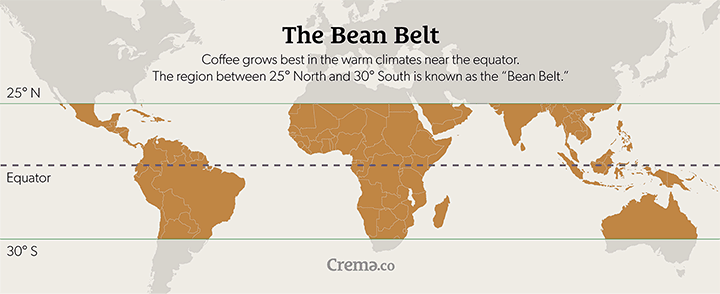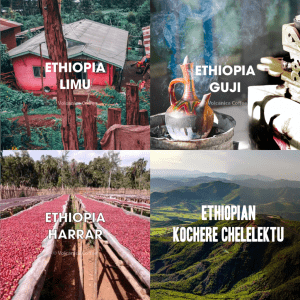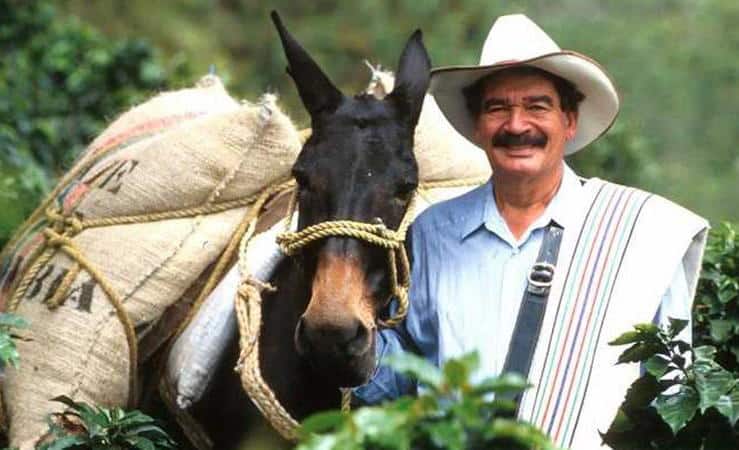Now that things are opening up we can return to our favorite cafés and coffee shops. Think of how this will improve our coffee prospects. We will have ample opportunities to sample coffee grown in different parts of the world. What a treat to have it prepared by professionals who know how to make the beans sing. It will also allow us to learn more about our favorite beverage and what makes it special. One term you may have heard bandied about is “specialty coffee.” But what do those fancy coffee people mean when they say it? Well, buckle up because I’m about to lay enough knowledge on you that you’ll be able to converse intelligently with anyone on either side of the coffee bar.
Specialty coffee is a term used for selling coffees based on arbitrary distinctions such as country of origin or type of roast, rather than by brand name. The Specialty Coffee Association has more detailed specifications regarding grading, handling, and brewing.
What’s the Difference? What makes Specialty Coffee special?
All coffees are not the same. Arabica beans – we’re not talking about Robusta here – vary widely in quality and flavor based on growing conditions and variety of plant stock. One can discern additional differences based on processing, handling, and the all-important roasting of the beans. You probably already have an opinion on how you like your coffee roasted.

Medium? Vienna? Full City? Learn everything you need to know about roasting levels in my free guide.
Specialty Regions
It is common to market coffees by country or growing region; perhaps it is a Costa Rican Blend. Sometimes specific parts of a country have a distinct flavor profile, e.g. Ethiopian Yirgacheffe. Kona coffee comes only from a specific district on the Big Island of Hawaii. Panama Esmeralda Gesha (or Geisha) only comes from a specific hilltop on one farm in Panama.


Via Volcanica.com
Specialty Processing and Handling
Shade-grown? Clearly, that is a specialty category. The method of processing of some coffees is also a distinction worth noting. Wet processed coffees utilize tanks of water to loosen the fruit off the coffee seed/bean. Dry processing or “natural coffee” is dried with the fruit still on. And then there is the “animal processing” that results in the famous Kopi Luwak.

Image by https://commons.wikimedia.org/wiki/User:Praveenp
Kopi Luwak is produced by collecting the droppings of the Luwak or Asian Palm Civet on the coffee growing islands of Indonesia. Ripe coffee cherries eaten by the luwak pass through the civet digestive system and are collected, cleaned, and prepared for roasting. It is generally regarded to be an exceptional cup of coffee. You can purchase it on Amazon (I might get a small commission). Please make an effort to get it from a “cage free” source. There is also the very expensive Black Ivory that uses a similar process only with elephants!
While we are in Indonesia, let’s think about the traditional method of Sumatran Monsooned coffee. Stored in burlap sacks and exposed to the elements, monsooned coffee picks up exotic, earthy flavors. I recommend a dark roast for full enjoyment.
Is Starbucks Specialty Coffee?
While Starbucks is all about the “third place” experience, their coffee does embody the characteristics associated with specialty coffee. They have various roasts and blends and they often offer coffees by origin and style. They also use their brand recognition to the same advantage that commodity coffee brands do.
What is Commodity Coffee?
Commodity coffee is coffee sold as a homogeneous product. Many farms in a geographic area may combine their yearly production and sell the combined crop as a single item. Wholesalers assemble large quantities of coffee from many areas but all Arabica or all Robusta, or even just “coffee” of any type. This is the type of coffee that you will see in “store brands” such as Folgers or Maxwell House. Quality can vary but it is consistent.

How Big is the Specialty Coffee Industry?
As of 2021, estimates put the U.S. coffee market at $46.2 billion. Over half of that comes from specialty coffee. According to a consumer survey conducted by National Coffee Association of America, U.S. consumers believe 48% of their purchases to be “specialty.”
The Specialty Coffee Association
Specialty Coffee Association (SCA) is a nonprofit, membership-based organization encompassing every element of the coffee value chain. It is dedicated to building an industry that is fair, sustainable, and nurturing for all. It should come as no surprise that they have something to say on the subject of specialty coffee.
The SCA has developed detailed specifications regarding what qualifies as “specialty coffee.” Every stage of coffee production, including allowable defects in green beans, water standards, and brew-strength has a quantifiable standard.
Is Specialty Coffee Worth the Price?
While everyone’s tastebuds are different, I think we can agree that there is a distinct taste difference between store brands and specialty coffee. For less than one thin dime per cup, you can have a much better experience. Let me show you:
Based on the cost of Folgers on Amazon, the cost of a brewed cup of Folgers is 4.5 cents. The brewed cost of a cup of Costa Rican coffee, also on Amazon, is 14 cents. The difference between an indifferent cup of coffee and a good cup of coffee is less than a dime. In my book, that is well worth the cost.
Conclusion
Specialty coffee is widely available and affords the casual coffee lover the opportunity to isolate the things about coffee that he or she loves best. Does the growing region make a difference to you? What about the roast characteristics of the coffee? Does dry processing bring out the complex flavors you love? With easily identified categories, you too can discover what makes your palate sing. Now that you have a little information, you also have a little perspective. Whether the cost difference between commodity coffee and specialty coffee is worth it to you is up to you, your wallet, and your tastebuds.

